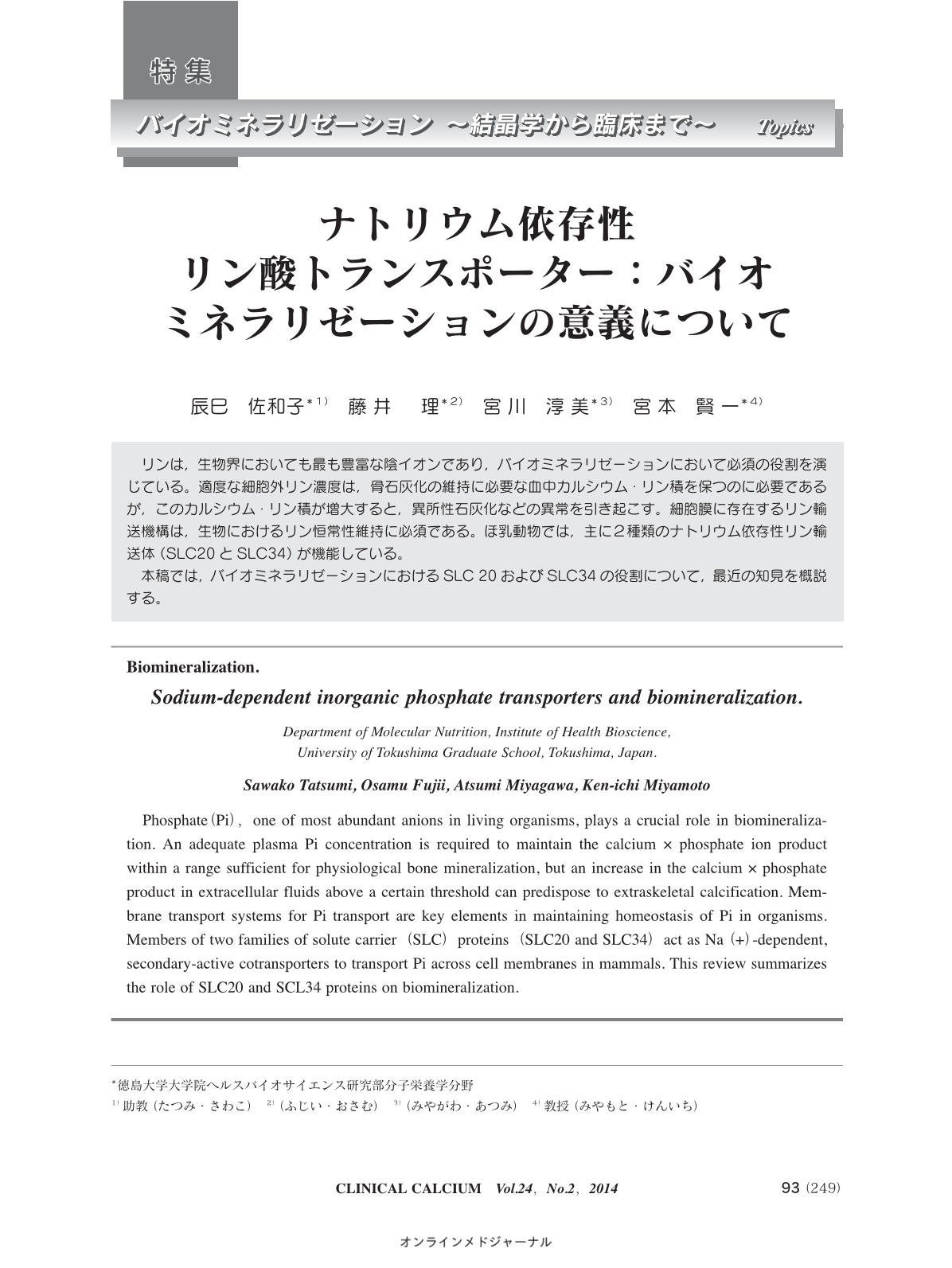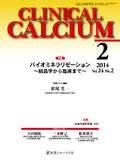Japanese
English
- 有料閲覧
- Abstract 文献概要
- 1ページ目 Look Inside
- 参考文献 Reference
リンは,生物界においても最も豊富な陰イオンであり,バイオミネラリゼーションにおいて必須の役割を演じている。適度な細胞外リン濃度は,骨石灰化の維持に必要な血中カルシウム・リン積を保つのに必要であるが,このカルシウム・リン積が増大すると,異所性石灰化などの異常を引き起こす。細胞膜に存在するリン輸送機構は,生物におけるリン恒常性維持に必須である。ほ乳動物では,主に2種類のナトリウム依存性リン輸送体(SLC20とSLC34)が機能している。 本稿では,バイオミネラリゼーションにおけるSLC 20およびSLC34の役割について,最近の知見を概説する。
Phosphate(Pi),one of most abundant anions in living organisms, plays a crucial role in biomineralization. An adequate plasma Pi concentration is required to maintain the calcium × phosphate ion product within a range sufficient for physiological bone mineralization, but an increase in the calcium × phosphate product in extracellular fluids above a certain threshold can predispose to extraskeletal calcification. Membrane transport systems for Pi transport are key elements in maintaining homeostasis of Pi in organisms. Members of two families of solute carrier(SLC)proteins(SLC20 and SLC34)act as Na(+)-dependent, secondary-active cotransporters to transport Pi across cell membranes in mammals. This review summarizes the role of SLC20 and SCL34 proteins on biomineralization.



